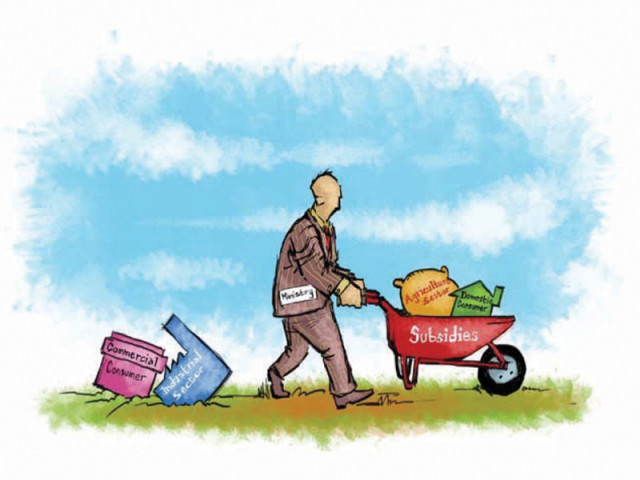Subsidies: Unjust increase in electricity tariffs for agriculture sector
The fallout of IMF loan conditions and how they will affect local farmers.

The fallout of IMF loan conditions and how they will affect local farmers. CREATIVE COMMONS
Although the elected government is celebrating it as its first economic gain within three months of taking office, it seems that the financial managers of this government are also moving along the same track which leads to nothing but recycling the debt. This loan programme has much more disastrous impacts as compared to any loan deal signed in the past due to conditions that Pakistan had to fulfill before the initial reimbursement of the amount.
The prerequisites, including an increase in General Sales Tax, electricity tariffs, uplifting the subsidies from utilities and maintaining the interest rates despite the favourable condition, had to be fulfilled before negotiations with IMF.
But the actual cost of this program would be paid by the poor masses of the country with the reimbursement of the loan in the upcoming three years in the form of price hikes, privatisation of utility services etc.
The first bomb fell on the agriculture sector soon after the announcement of the availability of first installment amounted $540 million, when the finance minister announced the decision to cut the agriculture subsidy and increase the electricity tariffs for agriculture. According to a news story published in the same paper two days ago, the finance minster said that the government will change the electricity tariffs available to the agriculture sector. In his view it does not matter if the agriculture sector does not get electricity during evening. He further added that an increase in support prices causes inflation to go up.
So does it make sense that inefficiency prevails in the agriculture due to low or subsidised prices for electricity? There are multiple factors including feudalistic arrangements of growing, the exploited role of middle man or commission agents and lack of infrastructure in agriculture sector which cause low productivity. Increasing tariffs would bring nothing but low productivity and inflation in this sector. It would be unjust to raise tariffs instead of improving the well being of farmer community. There are other sectors in the economy having high degree inefficiency so would it be a feasible solution to increase the tariffs and cut down the supply?
The reduction in electricity supply to the agriculture sector will force the growers to rely on expensive fuels like diesels and petrol, which will raise the cost of production and lower productivity for the sector.
A cut in support prices creates another storm of poverty in rural economy. In a country like Pakistan market failure is not a rare phenomenon, so government interventions like support prices are the only option for poor farmers. Similarly the subsidies on agriculture inputs should be continued to encourage productivity.
Agriculture is the largest and much ignored sector of the economy. Putting it on at the mercy of donor agencies may reduce the contribution of this sector in GDP growth. There is a need to modernise this sector.
The writer hosts business talk shows on FM 101 and Radio Pakistan and is pursuing M Phil in Economics
Published in The Express Tribune, September 9th, 2013.
Like Business on Facebook, follow @TribuneBiz on Twitter to stay informed and join in the conversation.



















COMMENTS
Comments are moderated and generally will be posted if they are on-topic and not abusive.
For more information, please see our Comments FAQ